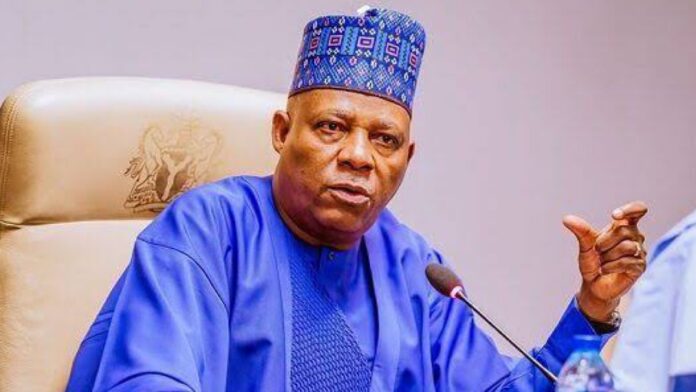The Federal Government is partnering with the International Cotton Advisory Committee (ICAC) to rejuvenate Nigeria’s cotton and textile industry.
Vice-President Kashim Shettima announced this after a meeting with an ICAC delegation led by Executive Director Eric Trachtenberg at the Presidential Villa, Abuja.
Reports have revealed he Federal Government aims to create over 1.4 million jobs annually in the cotton and textile sector by developing key components of the cotton value chain, including farming, weaving, ginning, and linking cotton, in line with President Bola Tinubu’s industrialisation drive.
Shettima urged stakeholders to devise a roadmap for revitalising Nigeria’s cotton/textile sector. He assured the delegation of the administration’s commitment to harnessing opportunities in the cotton value chain, ensuring Nigeria regains its ICAC membership.
Shettima acknowledged ICAC’s dedication to the sector’s development in Africa, noting that “your diverse backgrounds in ICAC give a nuanced understanding of the complexities and opportunities in the cotton value chain.”
Earlier, Gov. Babajide Sanwo-Olu of Lagos state said Lagos is well-positioned to leverage opportunities in the cotton value chain. He pledged the state’s support for efforts to revamp the sector, enhancing Lagos’ status as Africa’s largest fashion hub. Sanwo-Olu commended the federal government’s initiatives to create jobs and drive economic transformation, promising that Lagos would offtake cotton produced elsewhere for companies based in the area.
Gov. Hope Uzodinma of Imo stated that the meeting was part of Nigeria’s quest to revamp the textile industry and boost economic growth. He said Imo State and the Southeastern region would engage in the cotton/textile sector to create jobs through industrialisation. “The opportunity created by the meeting marks a new beginning in our quest for industrial recovery and job creation for our youths,” Uzodinma said.
ICAC Executive Director Trachtenberg expressed satisfaction with the interest and commitment shown by Nigeria’s leadership and stakeholders. Citing examples from China, India, Pakistan, and other countries, Trachtenberg highlighted the transformative potential of the cotton value chain. He affirmed that ICAC would support Nigeria by providing expert advice on improving productivity, boosting the value chain, and facilitating investment.



